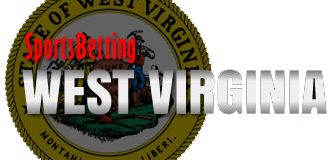What Will Happen To Offshore Sportsbooks When West Virginia Rolls Out Sports Betting?
 With WV being among the first states to pass comprehensive sports wagering regulations for in-state gaming, there has been some question about what will happen to offshore sportsbooks when West Virginia rolls out sports betting to its residents. After all, these offshore books (Bovada, SportsBetting, etc.) have been doing business with WV customers for over 20 years, and hundreds of thousands of state residents continue to use these services.
With WV being among the first states to pass comprehensive sports wagering regulations for in-state gaming, there has been some question about what will happen to offshore sportsbooks when West Virginia rolls out sports betting to its residents. After all, these offshore books (Bovada, SportsBetting, etc.) have been doing business with WV customers for over 20 years, and hundreds of thousands of state residents continue to use these services.
Indeed, one of the primary goals for the West Virginia Lottery, which runs the state’s sports betting initiative from a regulatory standpoint, is to attract as many of those offshore gamers as possible to the state’s wagering product. While new bettors will obviously prefer to take the state’s sports betting solution, the real difficulty will be in siphoning off the established online bettors in a way that brings back the most money to the state economy.
Oddly, West Virginia’s comprehensive sports betting omnibus, HB 415, makes no mention of these offshore books, and it doesn’t work in any penalty for state residents that continue to use them. Of course, using these services has never violated any state or federal law (not even when PASPA was still in effect), but WV authorities – particularly the WV Lottery – must be aware that Bovada, SportsBetting, BetOnline, 5Dimes, and a few other notable Internet-based overseas sportsbooks are by far their biggest and most daunting competitors in the sports betting space. Thus, it seems very likely that the state government will do something to address this “problem” at some point in the future.
The easiest way to get WV residents off of these offshore books and onto the state’s sports betting track is for the legislature to simply make using these sites illegal. There are effectively two ways to go about this, too.
The first option is to criminalize the activity from a bettor’s standpoint (and not just a bookmaker’s standpoint, as has traditionally been the case with US gambling and sports betting laws up till now). These offshore books work because unlicensed US-based bookmakers are not allowed to accept bets, not because US-based sports bettors aren’t allowed to place them. It would be easy enough legislatively to institute the latter as law.
The other way to drive traffic towards WV sportsbooks and away from legal online betting shops in other countries is to pass legislation that doesn’t criminalize the activity, but that forbids Internet service providers (ISPs) from allowing WV-based Internet traffic to those sites. This sort of geo-fencing will already be used to prevent WV bettors from wagering on other states’ gambling networks (per the Wire Act of 1961), so it seems like an easy enough solution. And since these offshore sportsbooks don’t allow users to connect via VPNs (virtual private networks), there would effectively be no real workaround for private individuals.
Of course, the state could simply do nothing to address their main competition through legislation, instead doing so through fair market practices and allowing WV residents to continue using whatever sportsbooks they wish. In this case – which would be the best case where the actual product is concerned – the West Virginia Lottery would simply have to offer a more compelling sports betting experience, free market style, to lure the maximum amount of users back home.
The state can already leverage its locality to provide players with same-day, immediate payouts, so that’s a big plus. And as long as they can offer odds as good as or better than what users can get overseas, it seems reasonable that there would be enough of a convenience factor there to guarantee success for sports betting in West Virginia from day one.
Oh, and they better take Bitcoin if they know what’s good for them.
| Best West Virginia Sports Betting Sites - 100% Trusted + Safe |


